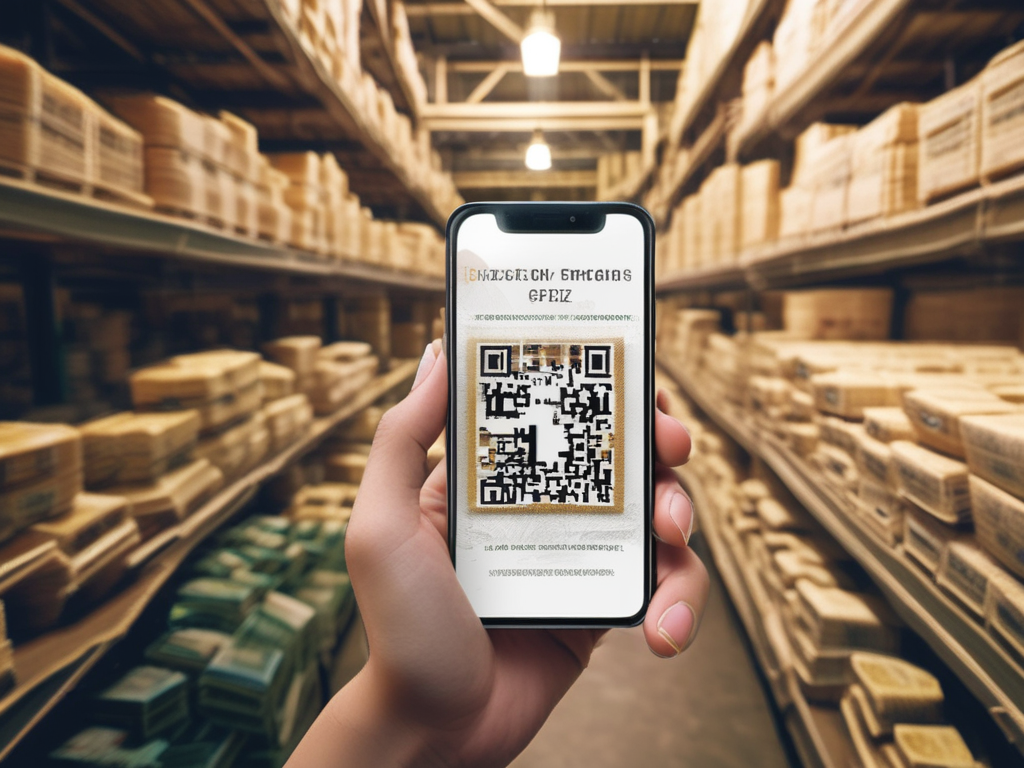In recent years, blockchain technology has emerged as a transformative force across various industries, including agriculture. Its potential to revolutionize the food supply chain by enhancing transparency, traceability, and efficiency is profound. This case study explores how blockchain technology is impacting the food supply chain, providing verifiable examples from Nigeria and the rest of Africa, and highlighting why this innovation is a valuable resource for farmers, distributors, and consumers alike.
Understanding Blockchain Technology in Agriculture
Blockchain is a decentralized ledger technology that allows for secure, transparent, and immutable recording of transactions. In the context of the food supply chain, blockchain can be used to track the journey of agricultural products from farm to table. Each transaction or movement of goods is recorded in a block, which is then linked to previous blocks, creating a chain of information that is accessible to all stakeholders involved.
Enhancing Traceability and Transparency
One of the primary benefits of blockchain technology in the food supply chain is enhanced traceability. In Nigeria, the use of blockchain has been piloted by organizations such as the International Institute of Tropical Agriculture (IITA) to track the movement of crops like cassava and yams. By scanning a QR code, consumers can access detailed information about the origin of the product, the farming practices used, and the journey it took to reach their table. This transparency builds trust and allows consumers to make informed choices about the food they consume.
Reducing Fraud and Ensuring Food Safety
Blockchain technology also plays a crucial role in reducing fraud and ensuring food safety. In Kenya, Twiga Foods, a B2B food distribution company, has implemented blockchain to streamline its supply chain. By recording every transaction on the blockchain, Twiga Foods ensures that all products are sourced from verified suppliers, reducing the risk of fraud and contamination. In the event of a food safety issue, blockchain allows for rapid identification and isolation of the affected batch, minimizing the impact on public health.
Streamlining Payments and Contracts
The implementation of smart contracts, which are self-executing contracts with the terms of the agreement directly written into code, is another significant advantage of blockchain technology. In Ethiopia, a coffee cooperative has adopted blockchain to manage contracts with international buyers. Smart contracts ensure that payments are automatically released upon the fulfillment of specified conditions, reducing delays and disputes. This not only enhances efficiency but also provides farmers with timely and fair compensation for their products.
Promoting Sustainable Practices
Blockchain technology can also promote sustainable agricultural practices. In Ghana, the company AgroCenta uses blockchain to incentivize farmers to adopt eco-friendly practices. By recording sustainable farming methods on the blockchain, farmers can receive higher prices for their products from buyers who prioritize sustainability. This creates a positive feedback loop, encouraging more farmers to adopt practices that protect the environment.
Practical Use of Blockchain Technology in Other African Countries
South Africa
In South Africa, the company BeefLedger has been using blockchain to improve traceability in the beef supply chain. By utilizing blockchain, BeefLedger ensures that every step, from the farm to the consumer, is recorded and verifiable. This enhances consumer confidence in the quality and safety of the meat products they purchase. Additionally, it helps in combatting food fraud and ensuring that the meat is sourced from sustainable and ethical farms.
Uganda
Uganda has seen the adoption of blockchain technology by the company Carico Café Connoisseur, which focuses on the coffee supply chain. By using blockchain, the company provides transparency about the coffee’s journey from the farm to the cup. Farmers receive fair compensation as their produce’s quality and origin are verified, and consumers gain confidence in the product’s authenticity and quality.
Morocco
In Morocco, the National Institute of Agronomic Research (INRA) has partnered with local agricultural cooperatives to implement blockchain in the olive oil supply chain. Blockchain technology helps in tracking the olives’ journey from harvest to processing and packaging. This transparency ensures that consumers receive high-quality, authentic olive oil and helps in maintaining Morocco’s reputation for producing premium olive oil.
Egypt
In Egypt, blockchain technology is being used to enhance the traceability of organic produce. Companies like FreshSource have implemented blockchain to track the supply chain of fruits and vegetables. This not only assures consumers of the organic certification and quality of the produce but also helps in reducing food waste by optimizing supply chain management and ensuring timely delivery of fresh products.
Challenges and Future Prospects
While the benefits of blockchain technology in the food supply chain are clear, there are challenges to its widespread adoption. These include the high cost of implementation, the need for technical expertise, and concerns about data privacy. However, as technology continues to evolve and become more accessible, these barriers are likely to diminish.
In Nigeria, the government and private sector are beginning to recognize the potential of blockchain technology. Initiatives such as the National Blockchain Adoption Strategy aim to promote the use of blockchain across various sectors, including agriculture. By investing in infrastructure and education, Nigeria can position itself as a leader in leveraging blockchain for agricultural development.
Conclusion
The impact of blockchain technology on the food supply chain is transformative, offering enhanced traceability, transparency, and efficiency. From reducing fraud and ensuring food safety to streamlining payments and promoting sustainable practices, blockchain provides numerous benefits that can significantly improve the agricultural sector in Nigeria and across Africa. As demonstrated by practical examples from South Africa, Uganda, Morocco, and Egypt, blockchain technology is fostering a more resilient and sustainable food supply chain. As farmers, distributors, and consumers become more aware of these advantages, the adoption of blockchain technology is likely to accelerate, driving positive change and fostering a more resilient and sustainable food supply chain.
This case study provides a comprehensive overview of how blockchain technology is revolutionizing the food supply chain, offering valuable insights for readers in Nigeria and the rest of Africa.
SIGN UP
To join our newsletter and receive our TWO invaluable business plans for FREE https://lajaadesina.systeme.io/f52bcbd8-d0afc701


